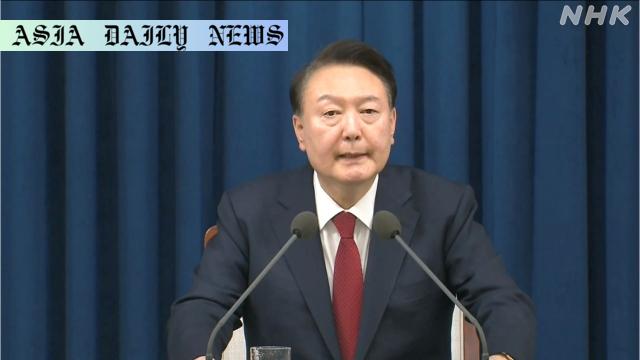Impeachment: South Korean President Yoon faces his first preliminary hearing in a criminal trial over insurrection charges.
Preliminary hearings for President Yoon Suk-yeol’s insurrection case begin in Seoul.
Prosecution demands expedited proceedings, while defense seeks more time.
Separate hearings are reviewing Yoon’s arrest cancellation request.
Yoon also faces an impeachment trial alongside the criminal case.

Introduction to Yoon Suk-yeol’s Legal Turmoil
The impeached President of South Korea, Yoon Suk-yeol, encountered a significant development in his legal battle with the commencement of the preliminary hearing in his criminal case. Yoon has been charged with leading an insurrection during the short-lived imposition of martial law in December of the prior year. This action, deemed unconstitutional by many, has placed him in the crosshairs of both legal and political scrutiny.
The Preliminary Criminal Hearing
The Seoul Central District court marked the start of Yoon’s trial on Thursday. Facing indictment on January 26, Yoon was charged with crimes that could have widespread ramifications for the political landscape of South Korea. The prosecution is aiming for swift processing of the case and has urged that hearings be scheduled two to three times per week. However, the defense team is requesting a more measured approach, seeking additional time to thoroughly assess the case records before deciding whether to admit to or contest the charges.
Overview of the First Hearing
The first hearing lasted merely ten minutes, leaving much unresolved as both sides prepared for future sessions. The judge presiding over the case set the next hearing date for March 24, signaling a long journey ahead in Yoon’s criminal trial. It’s clear that both the prosecution and the defense are gearing up for high-intensity legal battles to come.
Analysis of Detention and Procedures
In tandem with the criminal trial, a separate hearing was held to address Yoon’s request for the cancellation of his arrest and his potential release. Yoon’s legal counsel argued that his detention stemmed from procedural irregularities, making it unlawful. As expected, the prosecution opposed any leniency, citing concerns about the potential destruction of evidence if Yoon were released. This element of the proceedings adds yet another layer of drama and complexity to the case.
The Impeachment Process by the Constitutional Court
While the criminal proceedings unfold, Yoon is simultaneously facing an impeachment trial conducted by the Constitutional Court. This trial aims to determine the validity of the National Assembly’s decision to impeach him, which could ultimately decide his political fate. The dual nature of these trials—criminal and impeachment—makes this case particularly significant in South Korean legal history.
The Larger Implications
The trials of Yoon Suk-yeol represent not only a critical juncture in his personal and professional life but also a reflection of the evolving political climate in South Korea. With public trust in governance at stake, the way these proceedings unfold will likely have profound consequences for the nation’s democratic institutions and political culture. Transparency, fairness, and justice are paramount as the courts navigate this highly charged case.
Conclusion
As the next hearings approach, the legal teams will continue building their arguments, and the nation watches closely. This case is not just about Yoon’s fate but also about the rule of law prevailing amidst political turbulence. The dual trials—criminal and impeachment—underscore the weight of responsibility on South Korea’s judiciary and its ability to handle cases that could shape its democratic trajectory for years to come.



Commentary
The Legal and Political Impact of Yoon Suk-yeol’s Trials
President Yoon Suk-yeol’s trials, both criminal and impeachment, are among the most high-profile cases in South Korea’s recent history. They highlight the fragility of political leadership and the unifying demand for accountability from all citizens. As someone who follows South Korean politics closely, I see this as more than just legal proceedings. They represent a broader societal shift where people are willing to challenge power when it diverges from democratic values.
Unfolding Dynamics in a Volatile Legal Case
What stands out in Yoon’s case is the brewing battle between his defense and the prosecution. The defense plea for adequate time to examine trial records is understandable, given the gravity of the accusations. Nonetheless, the prosecution’s urgency reflects their suspicion that delays could allow tampering with evidence. Such contrasting strategies make this legal process as intriguing as it is significant.
Broader National Consequences
On a larger scale, Yoon’s trial will have ramifications far beyond just his political career. It speaks to the integrity of South Korea’s political and judicial systems, serving as a litmus test for their ability to resist corruption and uphold justice, even against the most powerful figures. Both the judiciary and the Constitutional Court have enormous responsibility to strike a balance between accountability and democratic fairness.
As these trials unfold, I, like many others, will be paying close attention to their outcomes. These events underscore the importance of vigilance, civic engagement, and the rule of law in governance. Whatever judgment emerges, it will surely serve as a defining moment in South Korean history.